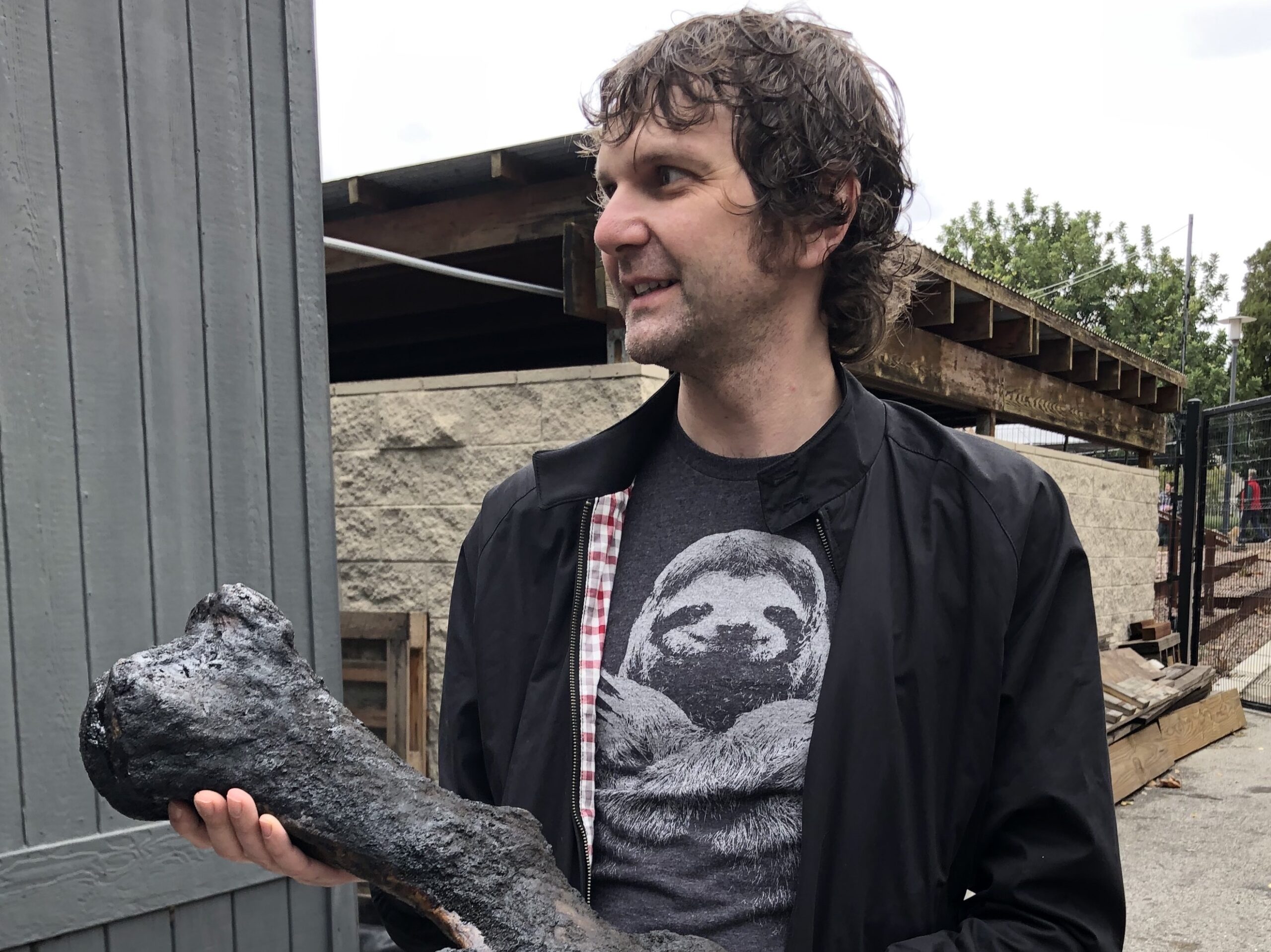Graham Slater, expert in mammalian evolution, to speak at Earth Day Evolutionary Studies seminar
By Kelly Tingle, Evolutionary Studies communications assistant
Graham Slater, a leading paleobiologist specializing in mammalian evolution, is scheduled to speak on Earth Day, Wednesday, April 19, 2023 on Predicting multivariate ecology of fossil taxa from morphological data. The seminar will be held from 3:10–4:10 pm in 101 Buttrick Hall and is open to all members of the Vanderbilt community. Light snacks and drinks will be provided.
 Slater’s work focuses on determining patterns of evolution from phylogenetics, the study of relationships between organisms, and the importance of incorporating fossil data into phylogenetic analysis. Much of his research has investigated morphological evolution, such as body size or skull shape, of animals within Carnivora, a group of mammals that specialize in eating meat and includes bears, cats, and dogs. Slater and colleagues recently published a paper (also featured in the New York Times) demonstrating that the evolution towards giant size in baleen whales, such as the blue whale, is correlated with the establishment of seasonal upwelling cycles, a process in which nutrient-rich water is brought from the deep ocean to the surface, approximately 3 million years ago. These oceanographic changes would have increased but redistributed the occurrence of large blooms of plankton in the ocean. Giant body size would have allowed baleen whales to eat massive amounts of food when it became available and, to store reserves when resources were low.
Slater’s work focuses on determining patterns of evolution from phylogenetics, the study of relationships between organisms, and the importance of incorporating fossil data into phylogenetic analysis. Much of his research has investigated morphological evolution, such as body size or skull shape, of animals within Carnivora, a group of mammals that specialize in eating meat and includes bears, cats, and dogs. Slater and colleagues recently published a paper (also featured in the New York Times) demonstrating that the evolution towards giant size in baleen whales, such as the blue whale, is correlated with the establishment of seasonal upwelling cycles, a process in which nutrient-rich water is brought from the deep ocean to the surface, approximately 3 million years ago. These oceanographic changes would have increased but redistributed the occurrence of large blooms of plankton in the ocean. Giant body size would have allowed baleen whales to eat massive amounts of food when it became available and, to store reserves when resources were low.
Slater is an associate professor in the Department of Geophysical Sciences at the University of Chicago. He was a Peter Buck Postdoctoral Fellow at the Smithsonian Institute from 2012–2015. He was awarded his PhD from University of California, Los Angeles in 2009. He received his BS in Zoology from University College, London, and MS from Imperial College, London.
The Vanderbilt Evolutionary Studies Initiative was established in August 2019 with the aim of uniting a remarkably diverse array of scholars from a variety of disciplines with broad interests and expertise in evolution-related fields.
